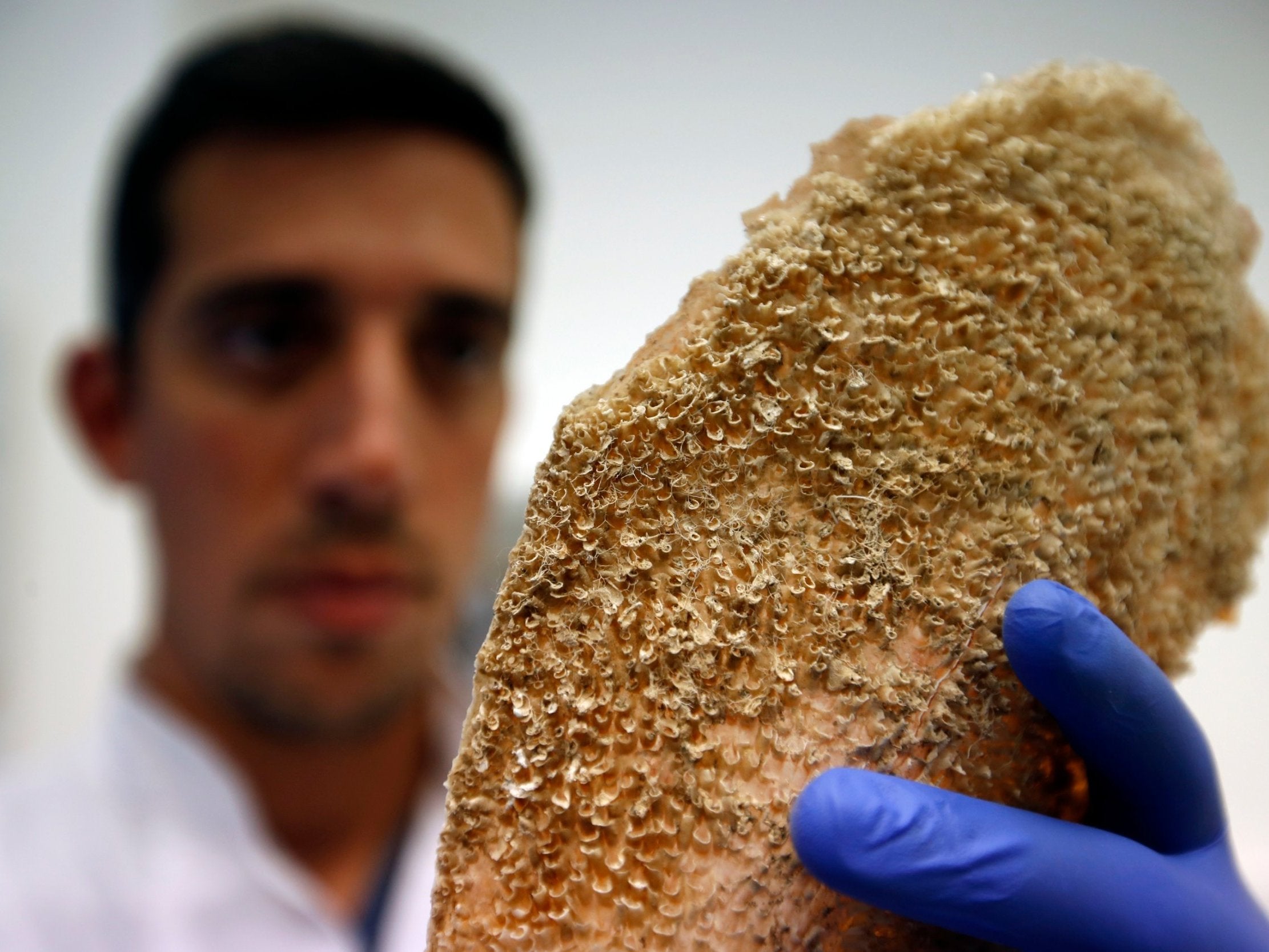Giant clam species being pushed to brink of extinction by mysterious parasite
Vast swathes of noble pen shell clams destroyed in just two years

Scientists have raised the alarm over the future of a famous species of clam being devastated by a mysterious parasite.
The noble pen shell clam is the largest bivalve native to the Mediterranean, the only sea in which it is found.
It can grow to more than a metre long and has long provided food and ultra-precious sea silk to nearby communities.
But since 2016 huge numbers of the mollusc, Pinna nobilis, have been killed by a parasite which has ravaged the species.
“We cannot be sure of anything at this point,” said Pantelis Katharios, a senior researcher at the Institute of Marine Biology, Biotechnology and Aquaculture of the Hellenic Centre for Marine Research.
“What we know now is that the Pinnas are dying, that the cause is this parasite, and we know that it’s spreading very, very rapidly.
“And that is going to be a huge problem [for] the ecology and the balance of the ecosystem in the Mediterranean.”
Maria del Mar Otero, from the International Union for Conservation of Nature, said the entire pen shell population on the Spanish coast was wiped out in less than a year.
The parasite, Haplosporidium pinnae, has also been found in dead pen shells near France, Malta, Tunisia, Italy and Greece.
Haplosporidium was only identified as a new species this year and how it kills the clams is not yet understood.
Scientists have concluded the parasite attacks the pen shells’ digestive systems and stops them from closing, leaving them unable to defend themselves from predators.
Experts are racing to try to understand how the parasite spreads so they can stop it before all the world’s noble pen shells are killed off.

Parasites do not normally attack their host organisms, so Haplosporidium’s lethal nature is puzzling researchers.
“Normally parasites in nature do not have any benefit from harming the host, because they depend on the host,” Mr Katharios explained.
“But once in a while we may come across incidents like this, where we have massive mortalities. It’s extremely, extremely difficult to find the truth at this stage.”
Join our commenting forum
Join thought-provoking conversations, follow other Independent readers and see their replies
Comments
Bookmark popover
Removed from bookmarks